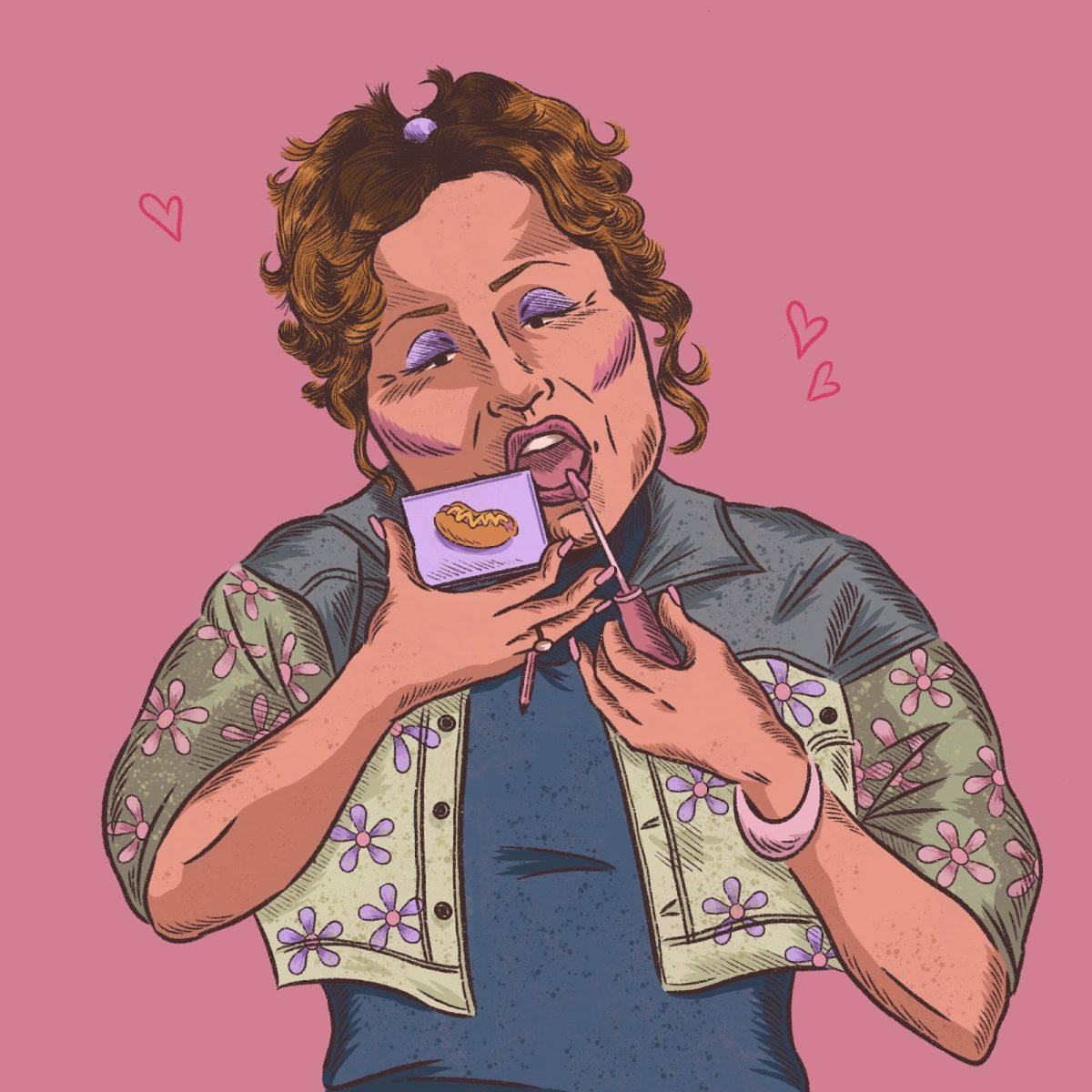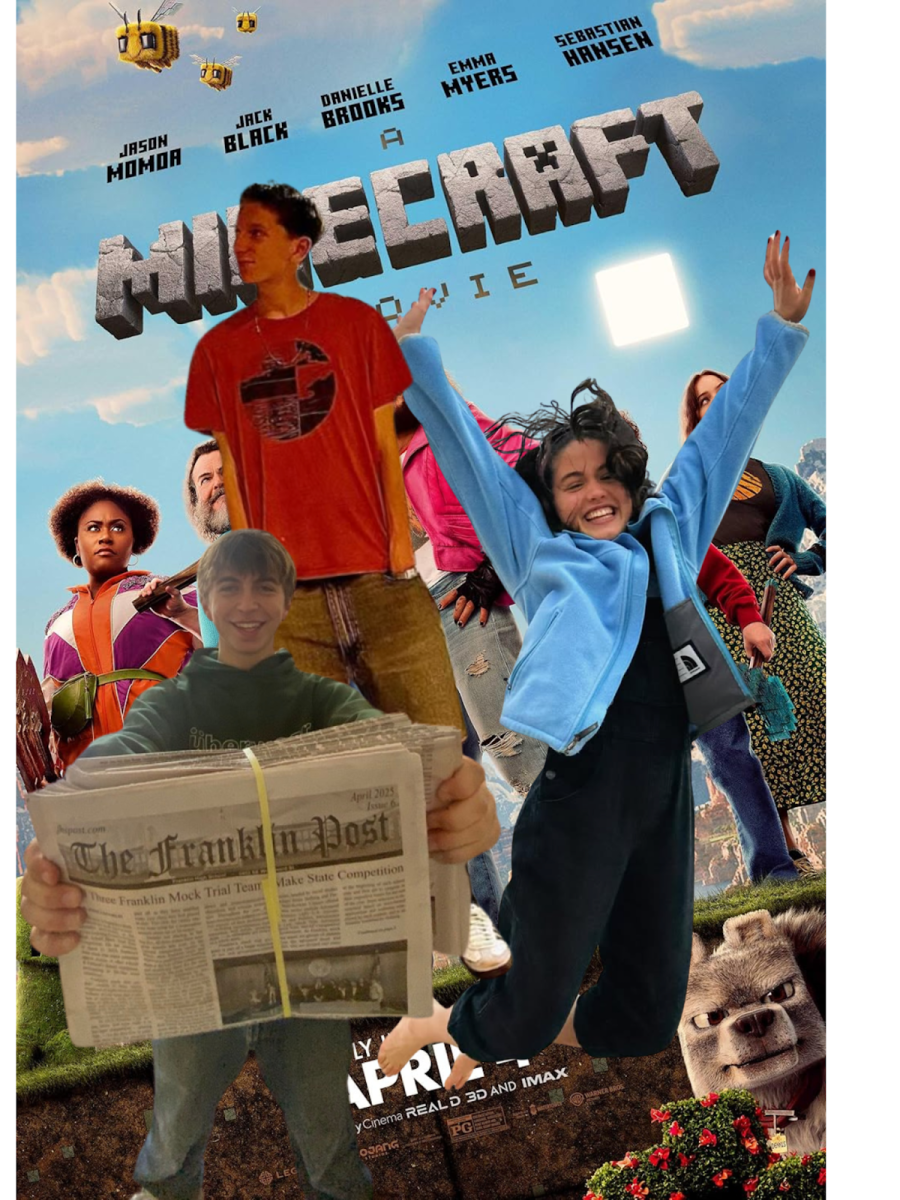Times, to repeat the pointless phrase, are tough. The chronic devastation of ongoing war, civil unrest, economic hardship, and the general suffocating feeling of most news nowadays, is fatiguing. Yet in this time of few joys, there is one unwavering guiding star. A breathy-voiced and fabulous shoulder to lean on: Jennifer Coolidge.
Coolidge’s ascendance to fame has been, much like her comedy, sedate and unpredictable. Following her stint with the Los Angeles improv comedy troupe, The Groundlings, and the odd guest appearances on television—she starred as one of Jerry’s countless flings on “Seinfeld”—Coolidge wedged her pedicured foot in the door with her role as Stifler’s mom in “American Pie” (1999). She went on to star alongside Reese Witherspoon in “Legally Blonde” (2001), and again in “Legally Blonde 2: Red, White, and Blonde” (2003), as the endearing nail technician, Paulette Bonafanté (“You look like the fourth of July! Makes me want a hot dog real bad.”). Fans of “Gravity Falls” will appreciate her role as “Lazy” Susan Wentworth, the darling waitress at Greasy’s Diner. More recently, Coolidge won her first Golden Globe Award for her role as the tragically fickle, yet lovable, Tanya McQuoid in the HBO original series “The White Lotus.” Despite “The White Lotus” being viewed as a career defibrillation of sorts for Coolidge, her fans will argue that her infectious camp was never truly absent from our hearts. Those who disagree may argue with said fans in the parking lot after school, if necessary.
Whether she’s melting the heart of a lesbian purebred poodle owner in “Best in Show” (2000), counting her daily smiles in the short-lived series “Party Down,” or jigging during her acceptance speech at the 74th Primetime Emmy Awards, Coolidge is an everlasting wellspring of joy and strength to her audiences including the students and staff of Franklin High School. Franklin junior Margot Lefebvre says “Jen Jen” is perfect, and gives her “mental bubble baths,” and she’s not alone.
Several expressed the jubilance and serenity Coolidge brings them, particularly in her role as Paulette Bonafanté; “The ‘Bend and Snap’ has made me smile, and brought me joy my entire life,” states Franklin math teacher Dylan Cohen. Others described the strength her portrayal inspires within them each day, “‘Legally Blonde’ got me through some hard times, man,” states an anonymous Franklin junior. Adult and Franklin Post advisor, Elizabeth Kirsch, finds inspiration in this Coolidge performance as well, saying, “her ‘I’m taking the dog…DUMBASS’ moment from ‘Legally Blonde’ is the energy I summon anytime I want to bring down the patriarchy.” Which, she adds, is all the time.
Tanya McQuoid was second among the most adored of the actress’s roles, and I can hardly disagree. All at once airheaded, alarmingly vain, yet delightful, McQuoid is an evolved perfection of the “ditz” role Coolidge has performed all too well over her career. In the first season of “The White Lotus,” tell me you watched McQuoid gripping her mother’s ashes on that evening cruise, hysterically crying out “Oh, mother! Oh, mother, oh mother!” and didn’t, while laughing as usual, also feel a pang of loss right along with her; I won’t believe you. An anonymous Franklin freshman says this Coolidge performance “truly inspired [them].” And honestly, who can beat quotes like “these are some high-end Gays”? Streaming on HBO Max right now, guys.
Several Franklin students and staff equated Coolidge to a divine being, with Kirsch describing her as “holy,” and an anonymous junior claiming her to be their “God.” Of course, worship of sacred figures typically involves sacrifice. “I would trade my first born child, and both of my kidneys, just to stand at the opposite end of a room she was in,” states Franklin junior Eloise Beauvais. I’m sure Ms. Coolidge would appreciate the gesture; and what have kidneys ever done for us that she hasn’t?
One especially poignant comment came from an anonymous Franklin junior, stating “everytime I think of [Coolidge’s] contribution to cinema, a single tear falls down my face in admiration.” Yet another term of well-deserved praise for a cosmic legend of our era. An icon, a goddess; mere attempts to capture the brilliance of a woman whose very aura evades lingual description. To close with a rephrasing of her words as Sherri Ann Cabot in “Best in Show,” we could not talk or talk about her forever; yet still find things to not talk about.

































